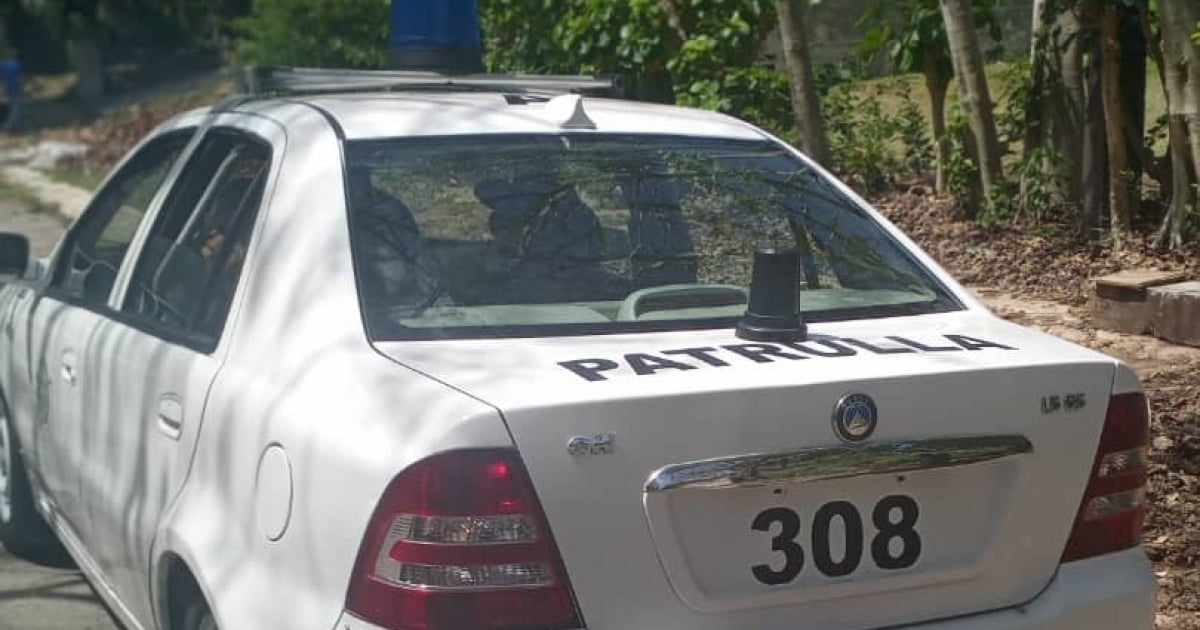The Cuban Ministry of the Interior (MININT) announced on Monday that Kenier Ávila Ramírez has been identified as the suspect in the murder of a nine-year-old girl, which occurred late last month in the Grito de Yara community of Río Cauto municipality, Granma province. In a brief statement, the ministry did not specify the exact date of the murder, which took place on June 20, nor the date of Ávila Ramírez's capture, presumably on June 24 according to previous official reports. However, they noted that Ávila Ramírez has "a lengthy criminal record."
The MININT emphasized that the apprehension of the "reprehensible act's" perpetrator was achieved through the "joint efforts of the Ministry of the Interior and the public." The statement underscored Cuba's commitment to the Convention on the Rights of the Child and its protocols, which are grounded in the principles and values of Cuban socialist society, such as humanism, social justice, dignity, equality, and child protection. The ministry assured that the full weight of the law would be applied to the criminal, but did not express condolences to the victim's family.
The delayed communication from the Ministry of the Interior offered no further details regarding the circumstances surrounding the tragic event.
Social Femicide and Its Impact
Feminist organizations Alas Tensas and YoSíTeCreo in Cuba identified the girl as Orlis Daniela Castillo Mayo on June 30. She was reportedly killed in her home by a neighbor, now identified as Kenier Ávila Ramírez. Tragically, the young girl was the daughter of Yusmila Mayo Ruiz, who herself was a victim of femicide in February 2024 in Las Tunas province.
"The marks of femicidal violence linger in families, especially in societies like Cuba where prevention, reparations, and protection for indirect victims are inadequate," wrote the platforms, calling for "justice and reparations for the girl and her mother." The observers classified this heinous crime as social femicide due to its nature—committed by someone known to the victim and with extreme cruelty.
Orlis Daniela and her younger siblings discovered their mother's body after she was murdered by her partner on February 14 of the previous year. "This child's terrible story is not a tragedy of fate; it is the result of a broken society and a state that fails to protect the lives of women and girls," YoSíTeCreo in Cuba and Alas Tensas stated.
They demanded real protection for Yusmila's other children (four of whom are still alive) and for all children who survive their mothers' femicides in Cuba. They also called for support for families that are left to fend for themselves amid severe economic and administrative challenges in a devastated country. The platforms wished light and peace for the girl and sought justice and reparations for her family.
On social media, it was previously revealed through Kim Barban's testimony that the young girl was orphaned and living with her grandparents, who lacked the proper resources to care for her. According to the testimony, authorities had been alerted to arrange her transfer to a children's home, but "nothing was done."
Understanding the Tragic Incident in Cuba
Who has been identified as the suspect in the Cuban girl's murder?
Kenier Ávila Ramírez has been identified by the Cuban Ministry of the Interior as the suspect in the murder of the nine-year-old girl.
What did the Cuban Ministry of the Interior say about the suspect?
The ministry stated that Kenier Ávila Ramírez has a lengthy criminal record and that his capture was made possible through the combined efforts of the Ministry of the Interior and the public.
How have feminist organizations responded to the murder?
Feminist platforms Alas Tensas and YoSíTeCreo in Cuba have described the murder as a case of social femicide and called for justice and reparations for the victim and her mother.
